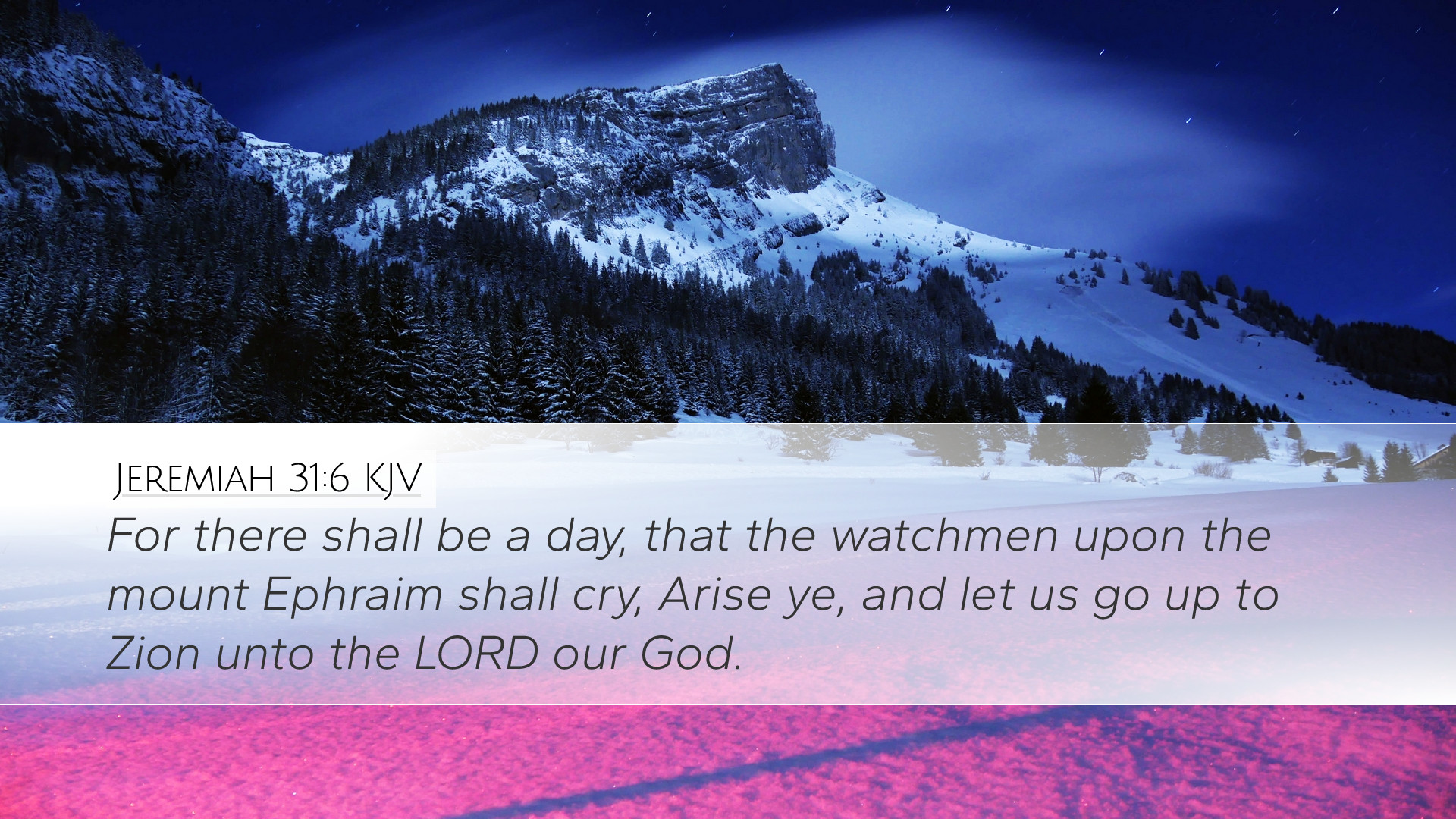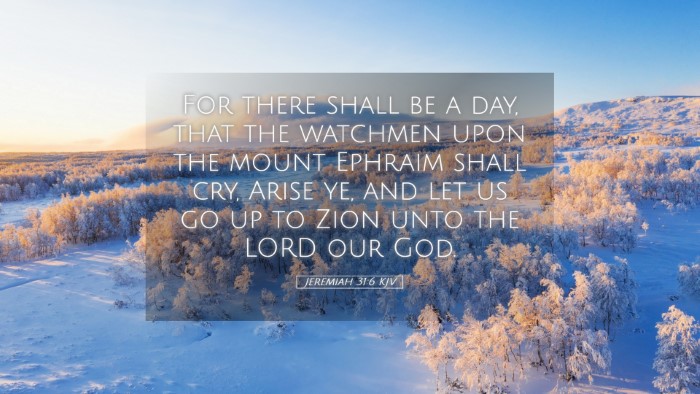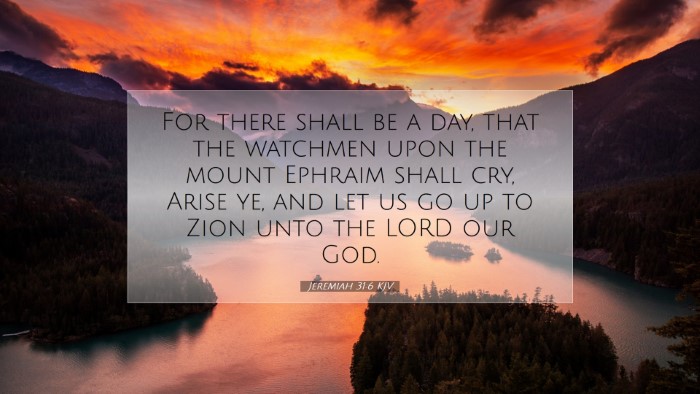Commentary on Jeremiah 31:6
Jeremiah 31:6 states: "For there shall be a day that the watchmen upon the mount Ephraim shall cry, Arise ye, and let us go up to Zion unto the Lord our God." This verse captures a vital moment in the prophetic ministry of Jeremiah, highlighting themes of hope, restoration, and the anticipation of divine intervention. Below, we explore insights from notable public domain commentaries.
Contextual Overview
The broader context of Jeremiah 31 encompasses God’s promise of restoration for His people Israel after a period of exile and suffering. Chapter 31 is a turning point, reflecting both the pain of the past and the hope for a redeemed future. Jeremiah speaks to a people who have endured loss but are given assurance of God's salvation.
Interpretations from Notable Commentators
Matthew Henry’s Commentary
Matthew Henry observes that the mention of “watchmen” signifies those who are spiritually vigilant, tasked with looking out for signs of God’s relief and restoration. He emphasizes:
- Watchmen represent leaders and prophets who discern the times, urging the people towards spiritual awakening.
- This cry to "Arise" signifies a call not just to physical action but a spiritual mobilization towards God; it’s an invitation to return to the covenantal relationship with the Lord.
- Henry interprets mount Ephraim as a symbol of hope, indicating that even the northern tribes (who experienced severe judgment) are not excluded from God’s promise of gathering.
Henry concludes that the restoration involves a communal movement back to Zion, which is seen as a center for worship and an embodiment of God’s presence among His people.
Albert Barnes’ Notes
Albert Barnes emphasizes the significance of Zion as a spiritual home for Israel. He highlights:
- The "day" proclaimed in this verse indicates a future time marked by a decisive intervention from God where the watchmen will announce the gathering of the people in joyful response to God’s initiative.
- Barnes interprets “the watchmen upon the mount Ephraim” as both a literal geographic context and a metaphor for those who watch over the spiritual state of the nation.
- He notes that the call to “let us go up to Zion” underscores the communal aspect of worship and returning to God — it is not merely an individual journey but a collective movement.
In Barnes’s view, this verse encapsulates the essence of hope that prepares the people to recognize divine grace and the urgency of restoration.
Adam Clarke's Commentary
Adam Clarke approaches the passage with insight into the prophetic implications for the people of Israel. He remarks on:
- The role of the watchmen as commissioned individuals who relay the urgency of God's message — they are tasked with rallying God’s people to return to spiritual fidelity.
- Clarke elaborates on the geographical imagery, asserting that Ephraim stands as a representative of the entire Israelite community, emphasizing their need for unity in returning to God.
- He draws connections between the call to ascend to Zion and the deeper significance of worship, linking this to the broader narrative of covenant renewal and the Divine promise of restoration.
Clarke’s interpretation invites readers to reflect on their own roles as spiritual watchmen, urging them to call others back to a heartfelt engagement with God.
Theological Significance
Jeremiah 31:6 carries profound theological implications that resonate through both Jewish and Christian traditions:
- Restoration and Hope: The verse is rooted in the unwavering hope of restoration, a theme that encapsulates the journey from despair to redemption. It is a reminder that even in the depths of exile, God’s promise prevails.
- Collective Worship: The call to ascend to Zion denotes the importance of community in the worship of God. It portrays worship as a collective experience where the nation is called to unite in their quest for divine presence.
- Role of Leadership: The mention of watchmen illustrates the profound responsibility of spiritual leaders to guide and mobilize the faithful toward a deeper relationship with God.
- The Anticipation of God's Kingdom: This verse foreshadows the eschatological hope present in both Testaments—the ultimate gathering of God's people and the establishment of His Kingdom.
Conclusion
In conclusion, Jeremiah 31:6 encapsulates a pivotal promise of restoration and hope for the people of Israel. The insights gleaned from Matthew Henry, Albert Barnes, and Adam Clarke contribute to a rich understanding of the text's message. For pastors, theologians, and scholars, this verse serves as a powerful reminder of the importance of community, the role of spiritual leadership, and the continual call to a deeper relationship with God. The wisdom of the past echoes the truth that God remains committed to His covenant people, inviting them to rise and seek His face.


